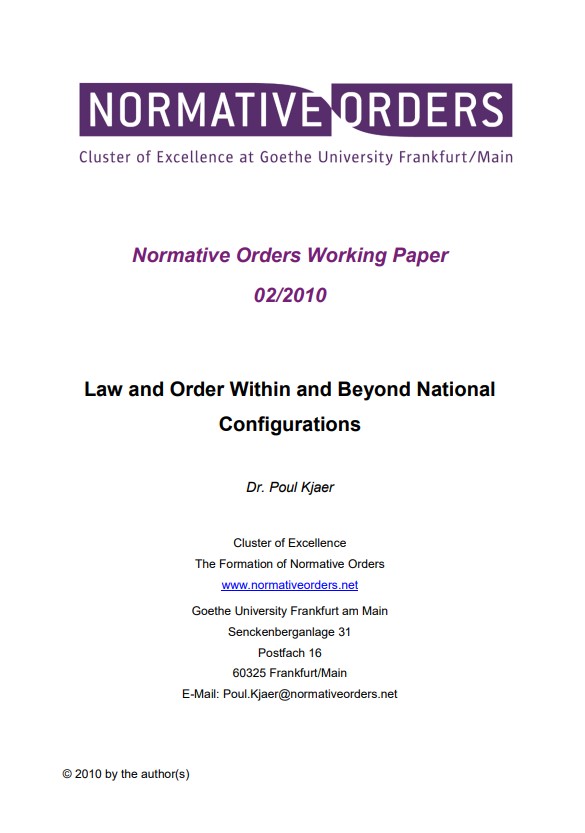Law and Order Within and Beyond National Configurations
On the backdrop of the 2008 financial crisis this paper introduces an understanding of societal crises as a reduction in the meaning production of social entities, which can either be internally or externally provoked. The emergence of constitutions and, more generally, constitutional structures, can be understood as responses to both forms of crisis. This is the case because they are double-edged structures which are simultaneously oriented towards the maintenance of internal order and stability within a given social entity at the same time as they frame the transfer of the meaning components between the social entities and their environments. Thus, the 2008 financial crisis indicates a failure of constitutional bonding. When observed from an overall structural perspective, the reasons for this failure can be traced back to an increased discrepancy between the structural composition of world society and the constitutional structures in place. The crisis reflects a failure to respond to two simultaneous, inter-related and mutually reinforcing structural transformations. First, there is the increased globalisation, which has led to massive dislocations in the relative centrality of the different national configurations for the reproductive processes of functional systems. Second, there is a structural transformation of the transnational layer of world society through a reduced reliance on the centre/periphery differentiation and an increased reliance on functional differentiation. One of the many consequences of this development is the emergence of new forms of transnational law and politics. A new constitutional architecture which reflects these transformations is needed in order to ensure an adequate constitutional bonding of economic processes, as well as of other social processes.


